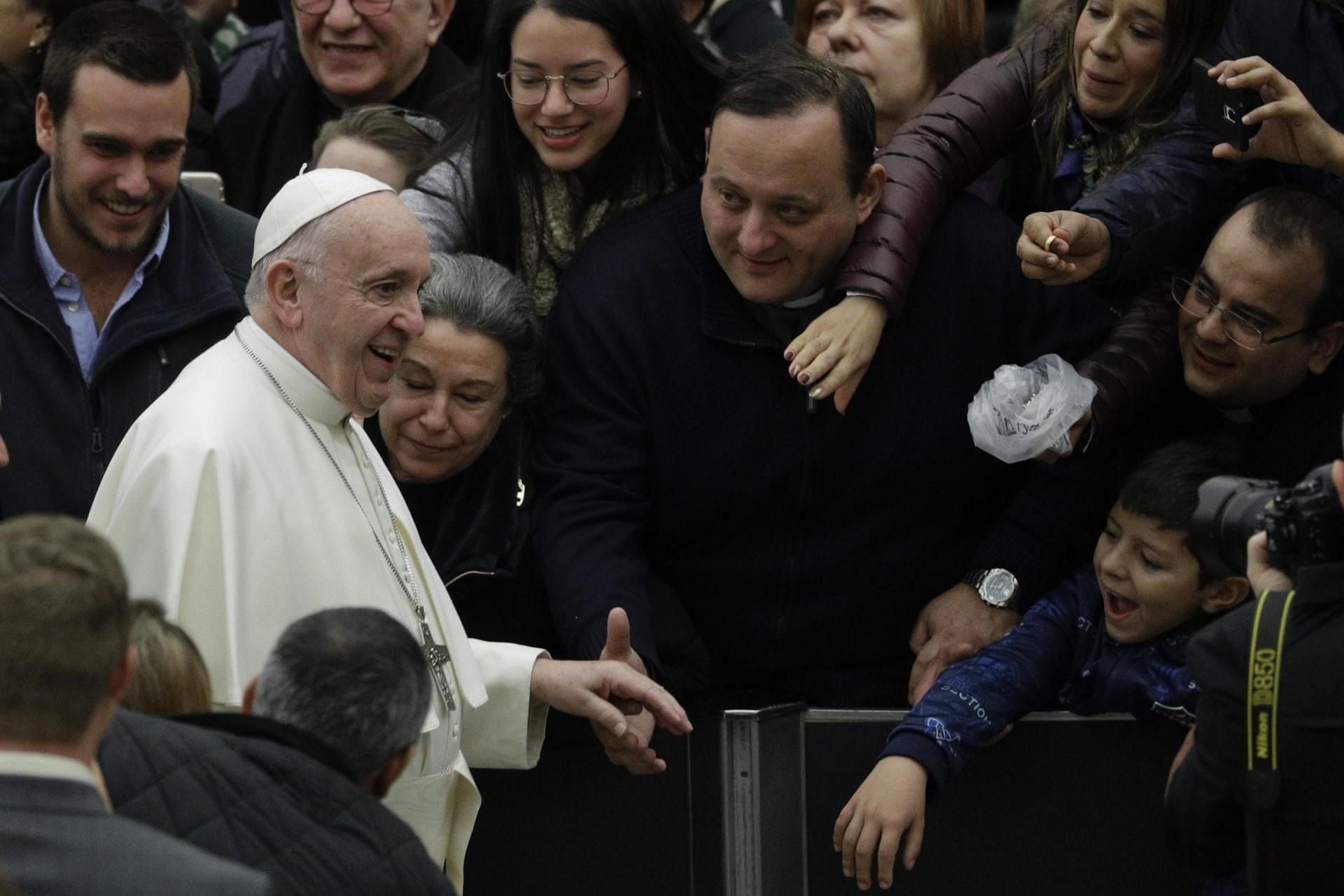ROME – God the Father will always be there for his beloved children, Pope Francis said Wednesday, with a reminder that the unconditional love of God is not limited by our own sense of guilt or unworthiness.
“God is looking for you, even if you do not seek Him. God loves you, even if you forget Him. God sees beauty in you, even if you think you have squandered all your talents in vain,” Francis said in his general audience Jan. 16.
The pope reflected on the first two words of the “Our Father,” focusing on the depth of personal love for each person found within God’s fatherhood.
“It may be that we too happen to walk on paths far from God, as happened to the prodigal son; or fall into a loneliness that makes us feel abandoned in the world; or, again, do wrong and are paralyzed by a sense of guilt,” Pope Francis explained.
In those moments, one’s prayer should simply start by saying the word, “Father,” with the tenderness of a child who calls out “Papa” or “Abbà,” in the original Aramaic, Francis said.
“You have a father who loves you!” the pope said enthusiastically. Call out to God as “Father,” and God will answer you, he said.
If you respond to God by saying, “But, Father, I have done this …” God will answer, “‘I never lost sight of you. I saw everything. But I was always there, close to you, faithful to my love for you,’” Francis said.
To call God “Father,” the pope explained, is to have “the whole world of Jesus poured into one’s heart.”
Francis described the intimacy of the Aramaic expression “Abbà” used twice in the letters of St. Paul. In his letter to the Galatians, St. Paul wrote, “As proof that you are children, God sent the spirit of his Son into our hearts, crying out, ‘Abba, Father!'”
Francis repeated the words that Italian children use, “Papa” and “Babbo,” which are equivalent to saying “Daddy” to exemplify the depth and closeness found in the word “Abba.”
“We continue to say ‘Our Father,’ but with the heart we are invited to say ‘Papa,’ to have a relationship with God like that of a child with his father, who says ‘Papa, Babbo,’” he said.
“These expressions evoke love, evoke warmth, something that projects us into the context of childhood: The image of a child completely enveloped by the embrace of a father who feels infinite tenderness for him,” he said.
Francis continued, “dear brothers and sisters, to pray well, we must get to have a child’s heart … like a child in the arms of his father.”












